Transcranial Magnetic Stimulation (TMS) is a non-invasive, FDA & Health Canada-approved treatment that uses magnetic pulses to stimulate brain areas responsible for mood regulation. It is an effective, drug-free option for individuals who haven't responded well to medication.
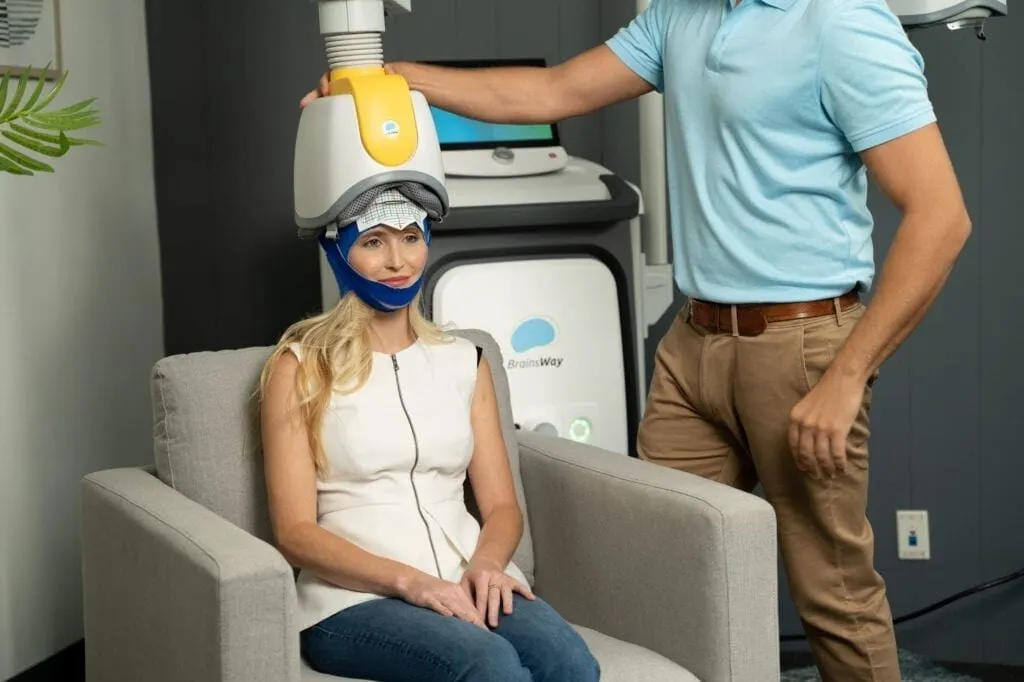
Repetitive TMS (rTMS):A proven treatment that uses repeated magnetic pulses to stimulate brain areas involved in mood regulation. It is commonly used for depression, anxiety, and OCD.
Deep TMS (dTMS):Reaches deeper brain structures for stronger and longer-lasting effects. It is effective for severe depression, OCD, and PTSD, even when other treatments haven’t worked.
Neuro Feedback: A gentle, non-invasive therapy that helps support brain function and recovery, often used for memory issues and cognitive decline.
Transcranial direct current stimulation(tDCS): Uses mild electrical currents to help improve brain activity. It may enhance focus, memory, and overall brain function for patients with neurological conditions.
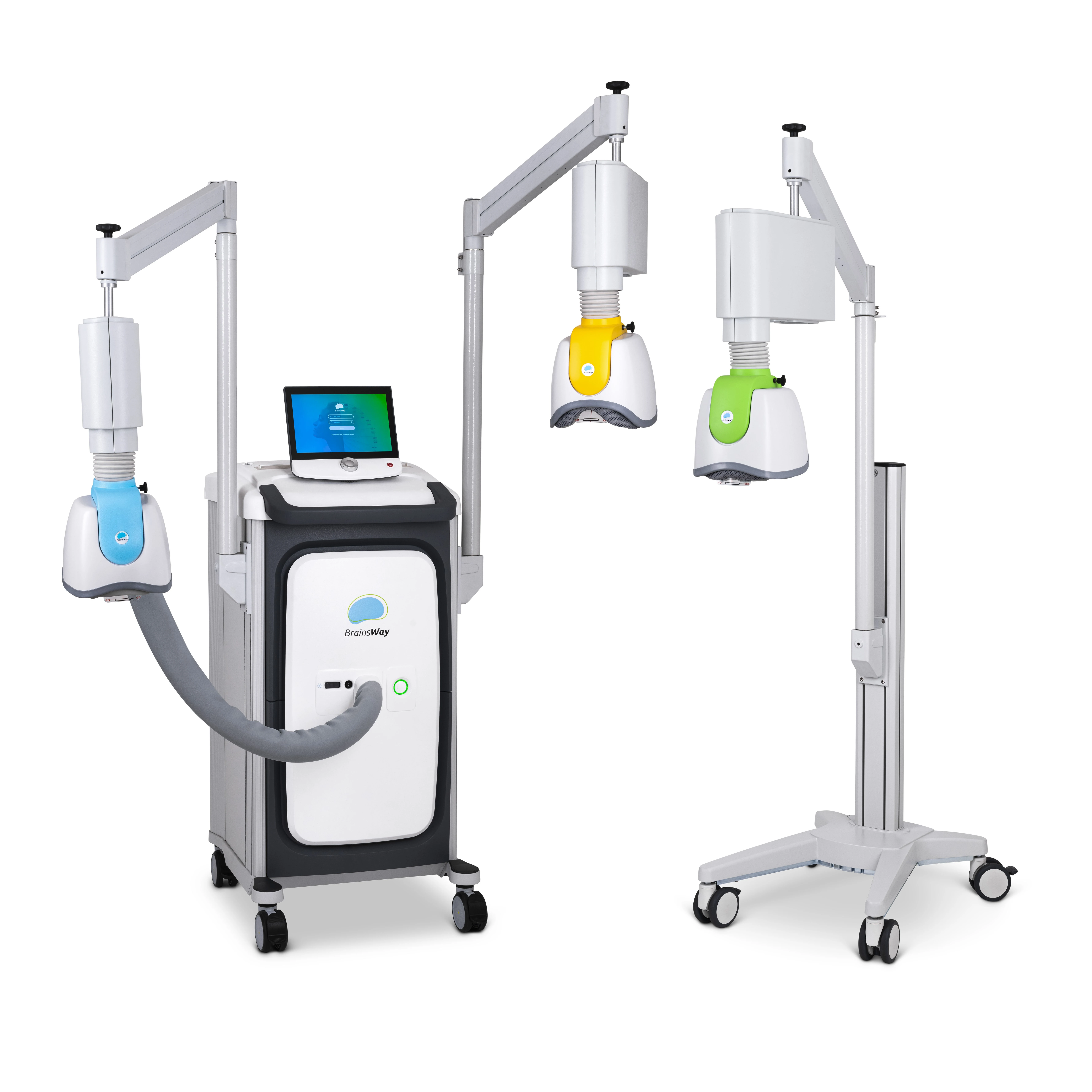
Deep TMS (H1, H7, H4 Coils) by BrainsWay
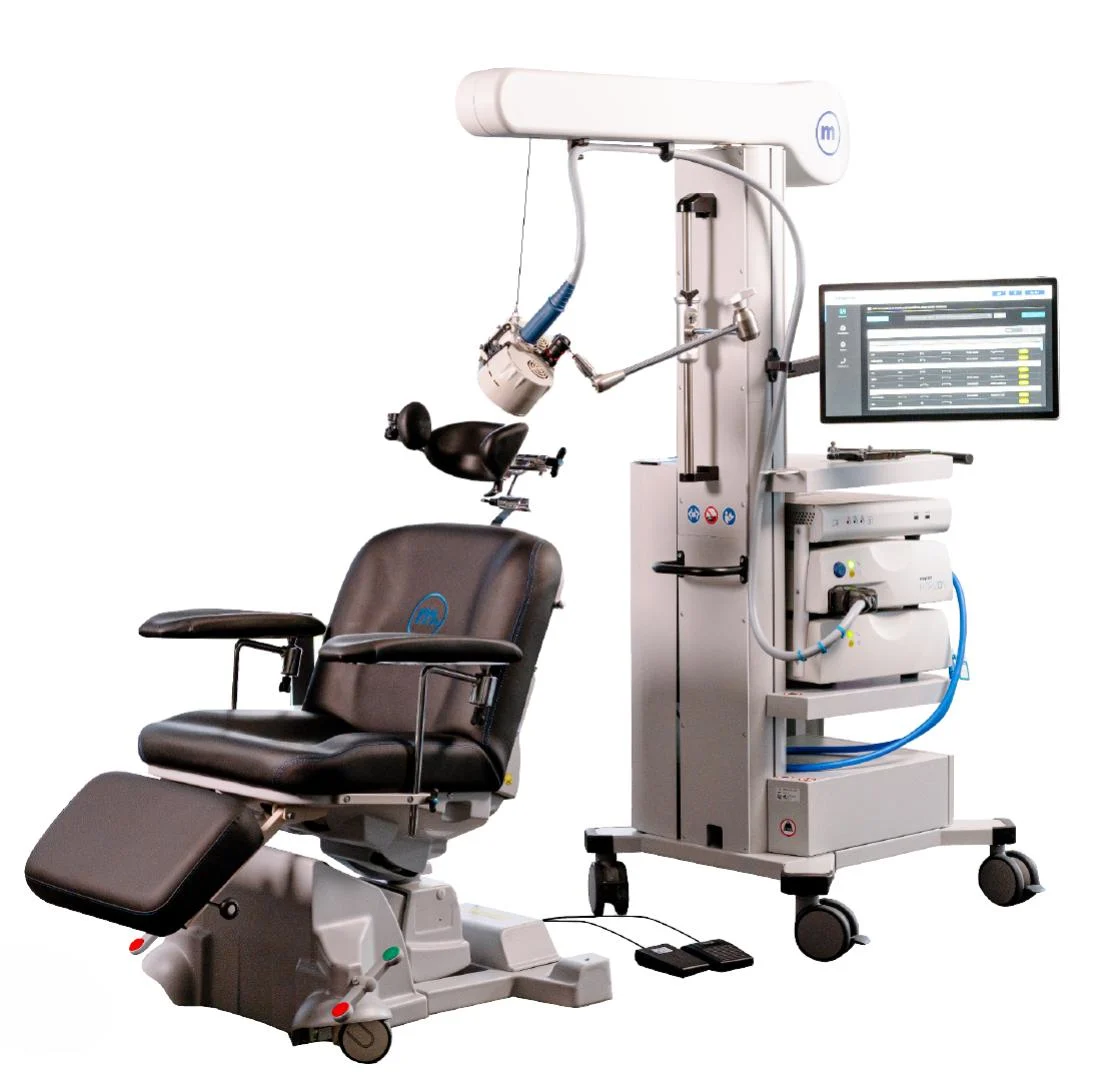
rTMS Horizon 3 by Magstim

Magnetic Pulses Target the Brain
A coil is placed on the scalp, delivering magnetic pulses to stimulate specific brain areas linked to mood regulation.

Neural Activity is Modulated
These pulses activate or regulate neurons in areas like the prefrontal cortex, which is often underactive in depression.

Mood and Symptoms Improve Over Time
With repeated sessions (usually over several weeks), brain activity normalizes, leading to reduced depression and anxiety symptoms.
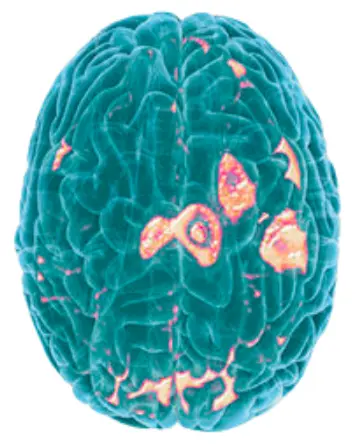
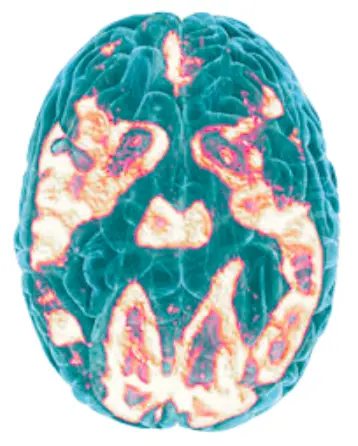
Areas are underactive or “slowed down.” Common in depression.
Areas are reactivated and functioning more normally.
Optimal engagement in emotional and cognitive regions.
Indicates reduced activity in key areas like the prefrontal cortex — associated with symptoms like sadness, low energy, and poor focus.
Shows increased and healthy activation, especially in areas that regulate mood, thinking, and motivation.
PET scan images show increased electrical activity in key regions following TMS, especially in areas linked to mood regulation like the left DLPFC. This illustrates how TMS can help restore normal brain function in depression.
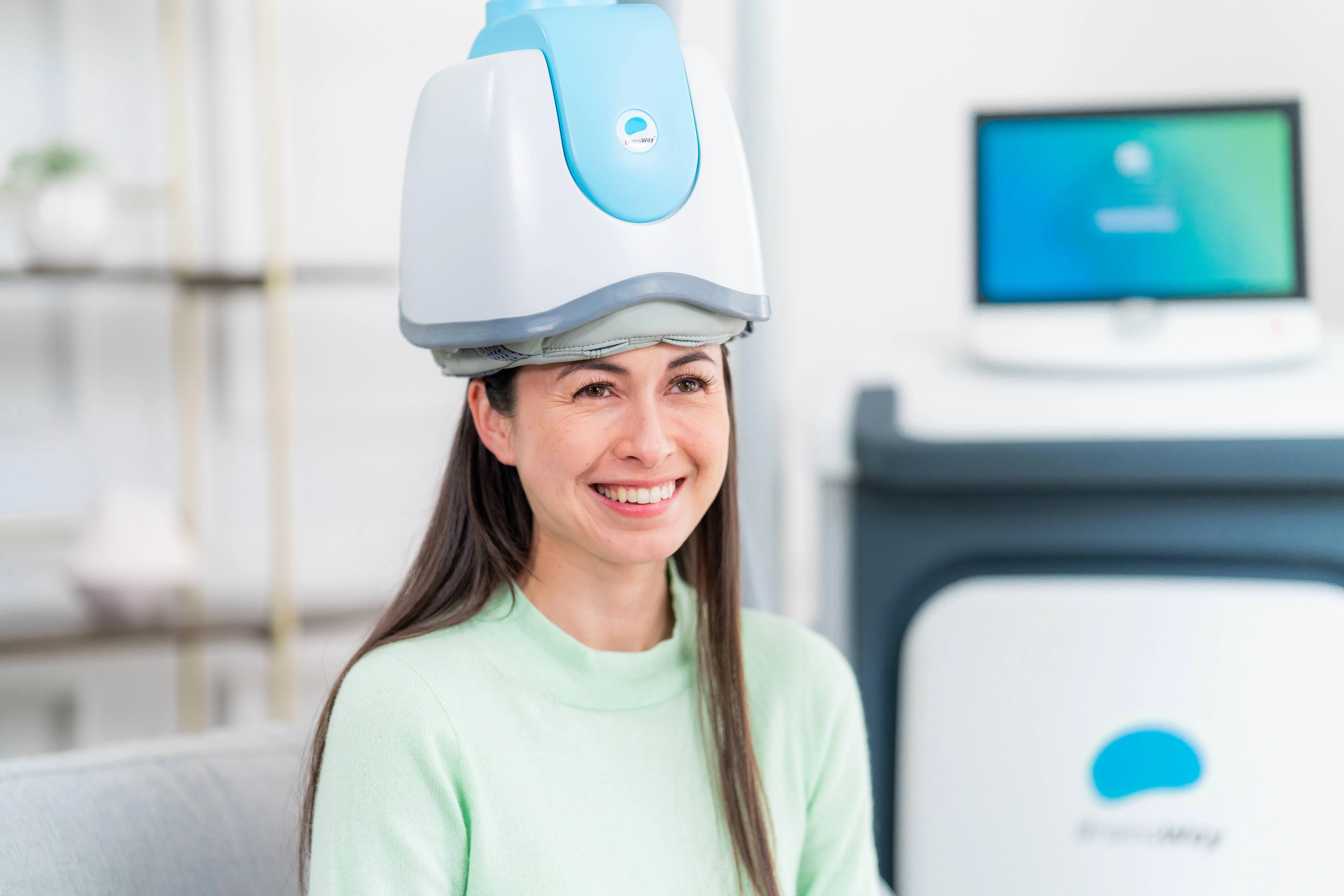
Reduces symptoms of Major Depressive Disorder (MDD).
Helps ease chronic worry and panic symptoms.
Supports brain healing from trauma-related stress.
Relieves obsessive thoughts and compulsive behaviors.
Helps break negative behavioral patterns.
For personalized support, contact us today and fill out the form, our team will reach out to you shortly.
Hello 👏
How can I assist you today?